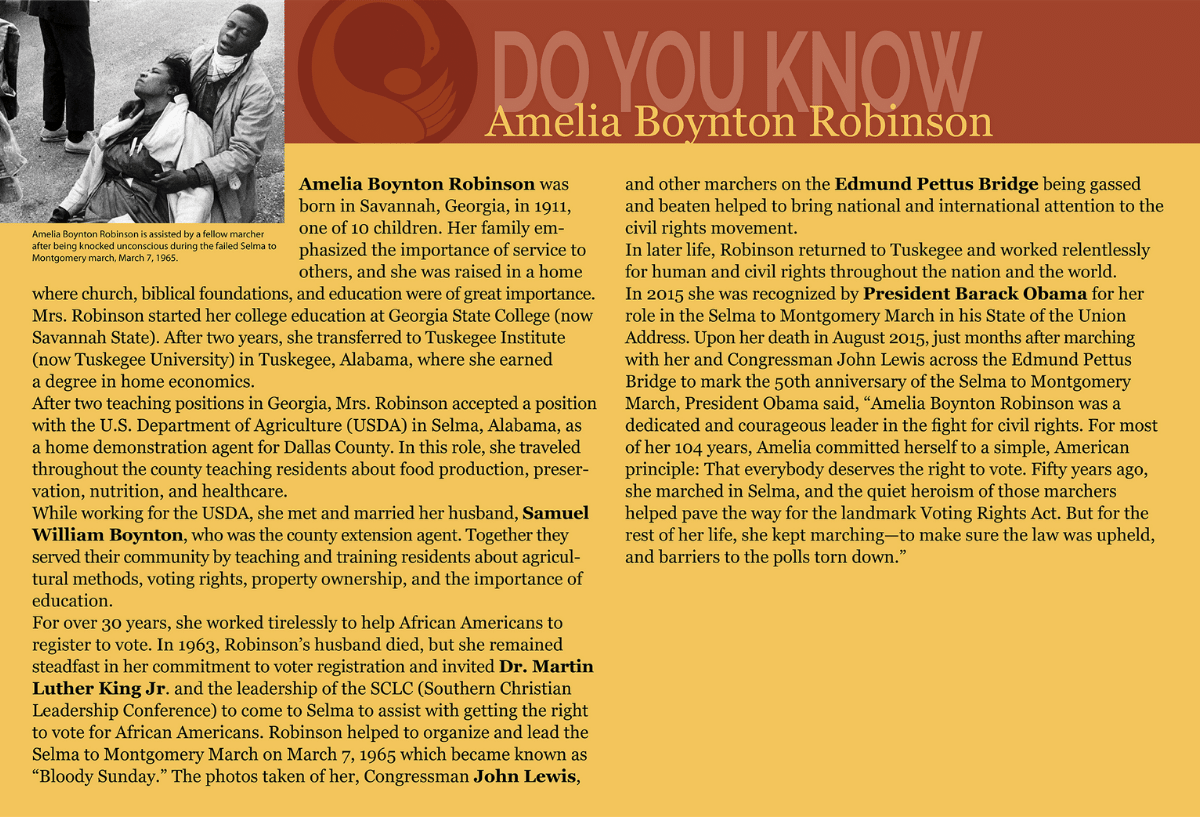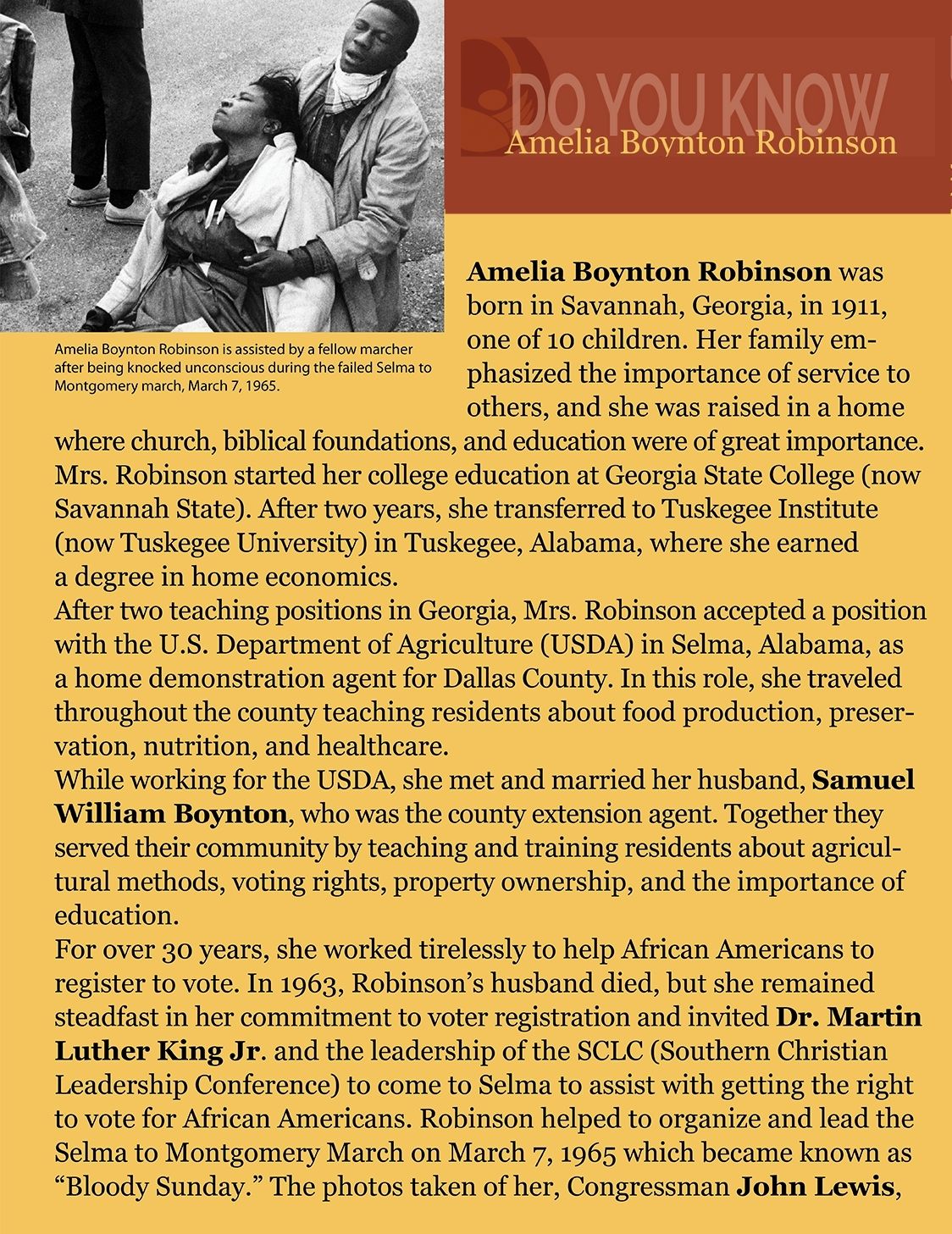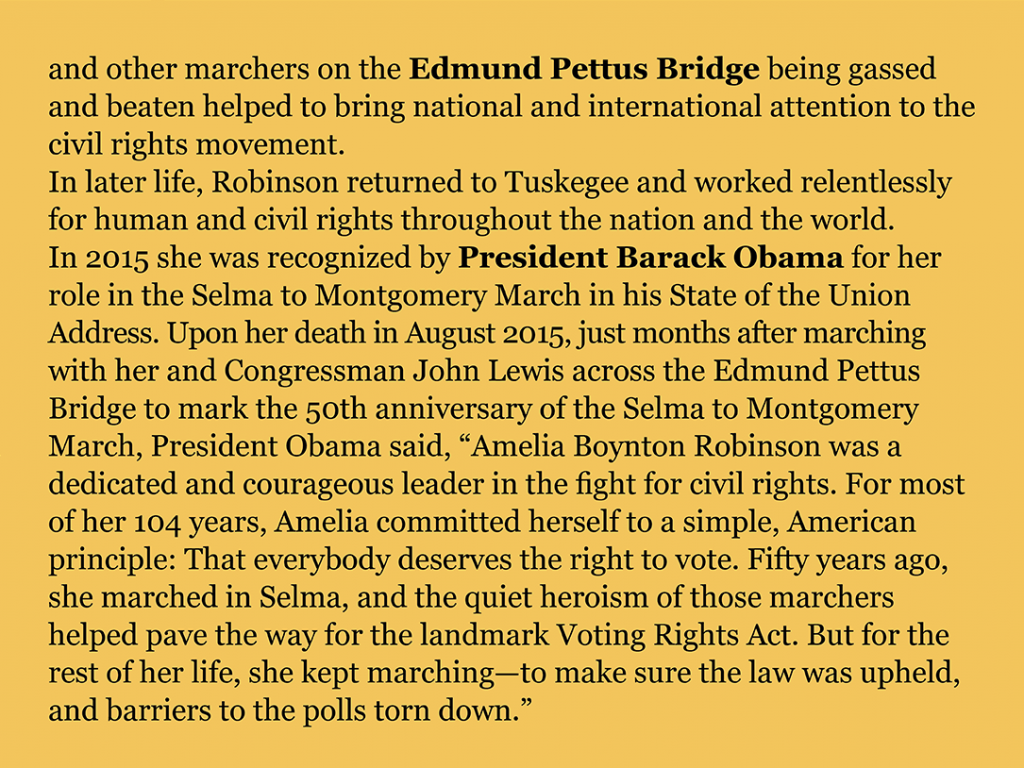2020 "Do You Know?" Honorees
To read about our four 2020 Honorees, please SCROLL DOWN or
click on an individual name.
To read about our four 2020 Honorees, please SCROLL DOWN
<a name=”shuttlesworth” ></a>
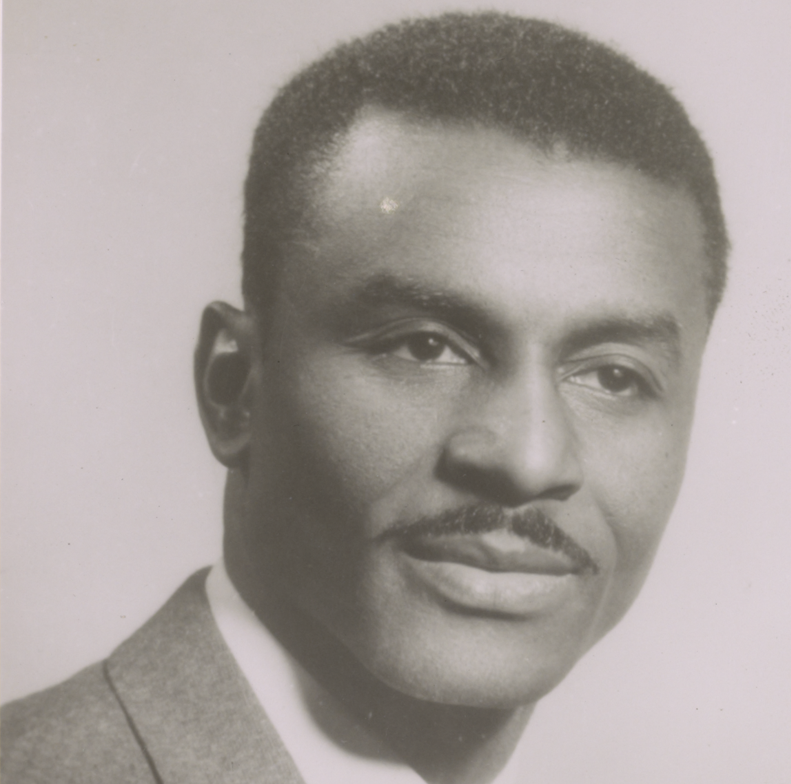
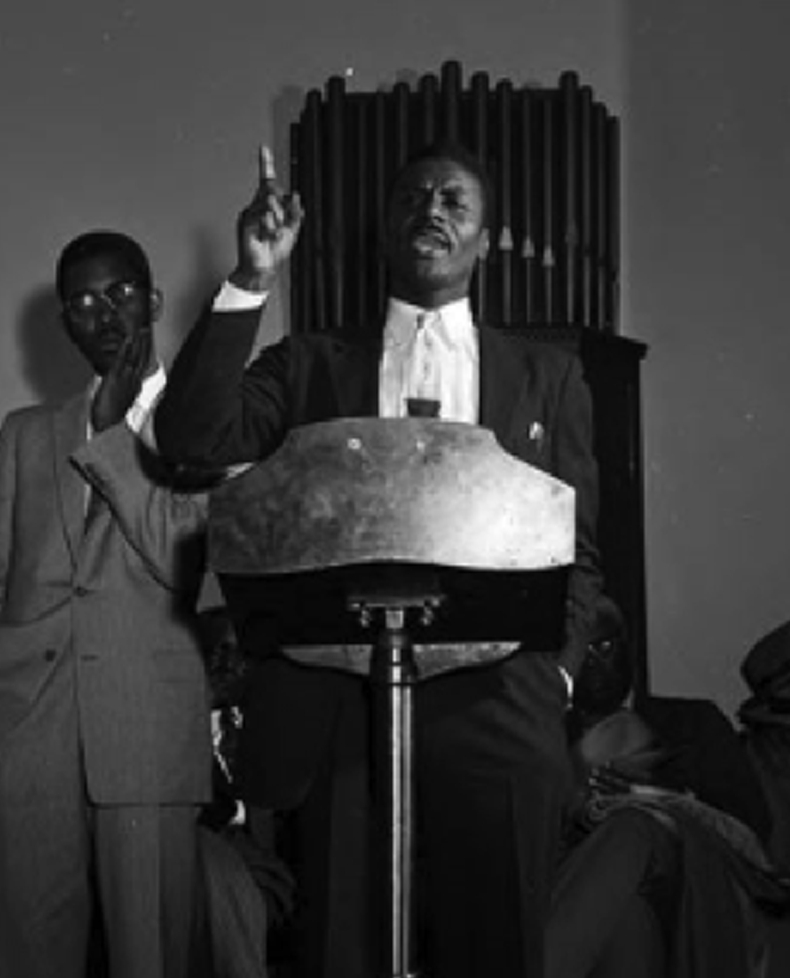

Reverend Fred Lee Shuttlesworth was born in Montgomery County, Alabama, on March 18, 1922. However, he was raised in Jefferson County. During World War II, he served as a truck driver at Brookley Air Force Base in Mobile. Responding to what he believed was a ministerial calling, Shuttlesworth enrolled in a small Baptist college in Mobile and later transferred to Selma University. He graduated from Alabama State College in 1952 and became pastor of the First Baptist Church of Selma. By 1953, he was pastor of Bethel Baptist Church in north Birmingham.
After Rev. Shuttlesworth’s move to Birmingham, he became very active in the NAACP (National Association for the Advancement of Colored People) to assist people in registering to vote. He supported the Civic League’s attempt to clean up saloons in Birmingham and supported the Montgomery Bus Boycott in Montgomery in 1955, which he attempted to replicate in Birmingham in 1956. Segregationists bombed his home in response to his work to desegregate the bus lines in Birmingham. Rev. Shuttlesworth was unharmed, and the event convinced him that he needed to continue to lead others against segregation.
Rev. Shuttlesworth, Dr. Martin Luther King, Jr., and Ralph David Abernathy formed the SCLC (Southern Christian Leadership Conference) in 1957 to focus attention on civil rights in the South. It became the most important and powerful civil rights organization in the South during the 1960s. He led by example and attempted to enroll two of his daughters in Phillips High School, a segregated school in Birmingham. He was severely beaten for his efforts.
Rev. Shuttlesworth urged demonstrations, sit ins, and coordinated marches in Birmingham which finally convinced President John F. Kennedy to introduce legislation to Congress that would become the 1964 Civil Rights Act. Pres. Kennedy credited Dr. King and Rev. Shuttleworth with the work in Birmingham that resulted in the 1964 Civil Rights Act and the 1965 Voting Rights Act.
Rev. Shuttlesworth traveled extensively and led work that provided housing to low-income residents of Cincinnati, Ohio, during his service as a minister at the Greater New Light Baptist Church. Before his death in 2011, the Birmingham Airport Authority voted to rename the airport as the Birmingham-Shuttlesworth International Airport to honor his work for others.

Watch this one minute Legacy Moment from Alabama Public Television about Rev. Fred Shuttlesworth here.
Primary source from the Alabama Department of Archives and History: Telegram from Rev. Fred Shuttlesworth in Bham, AL to Governor John Patterson in Montgomery, AL
Check out this article from the Encyclopedia of Alabama.
Discover more stories of Alabama African Americans in The Future Emerges from the Past: Celebrating 200 Years of Alabama African American History and Culture published by ALABAMA 200 as part of the commemoration of the state’s bicentennial.
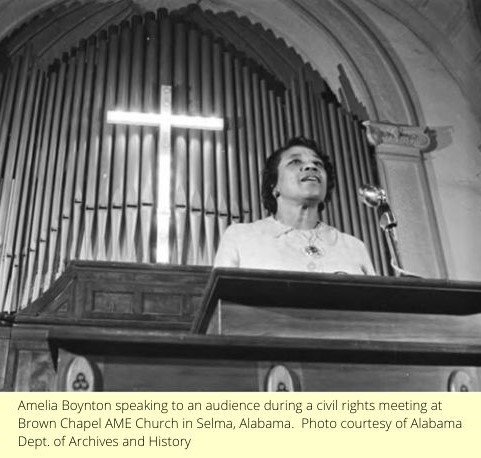

Watch a one minute Legacy Moment Amelia Boynton Robinson from Alabama Public Television here.
Primary source photographs: Scene at the foot of the Edmund Pettus Bridge in Selma, Alabama after the civil rights marchers were beaten and gassed by Alabama state troopers and Dallas County deputies on Bloody Sunday. (Mrs. Robinson is being assisted by others to stand.)
Check out this article from the Encyclopedia of Alabama.
Hear Amelia Boynton Robinson tell the story of “Bloody Sunday” on StoryCorps Atlanta.
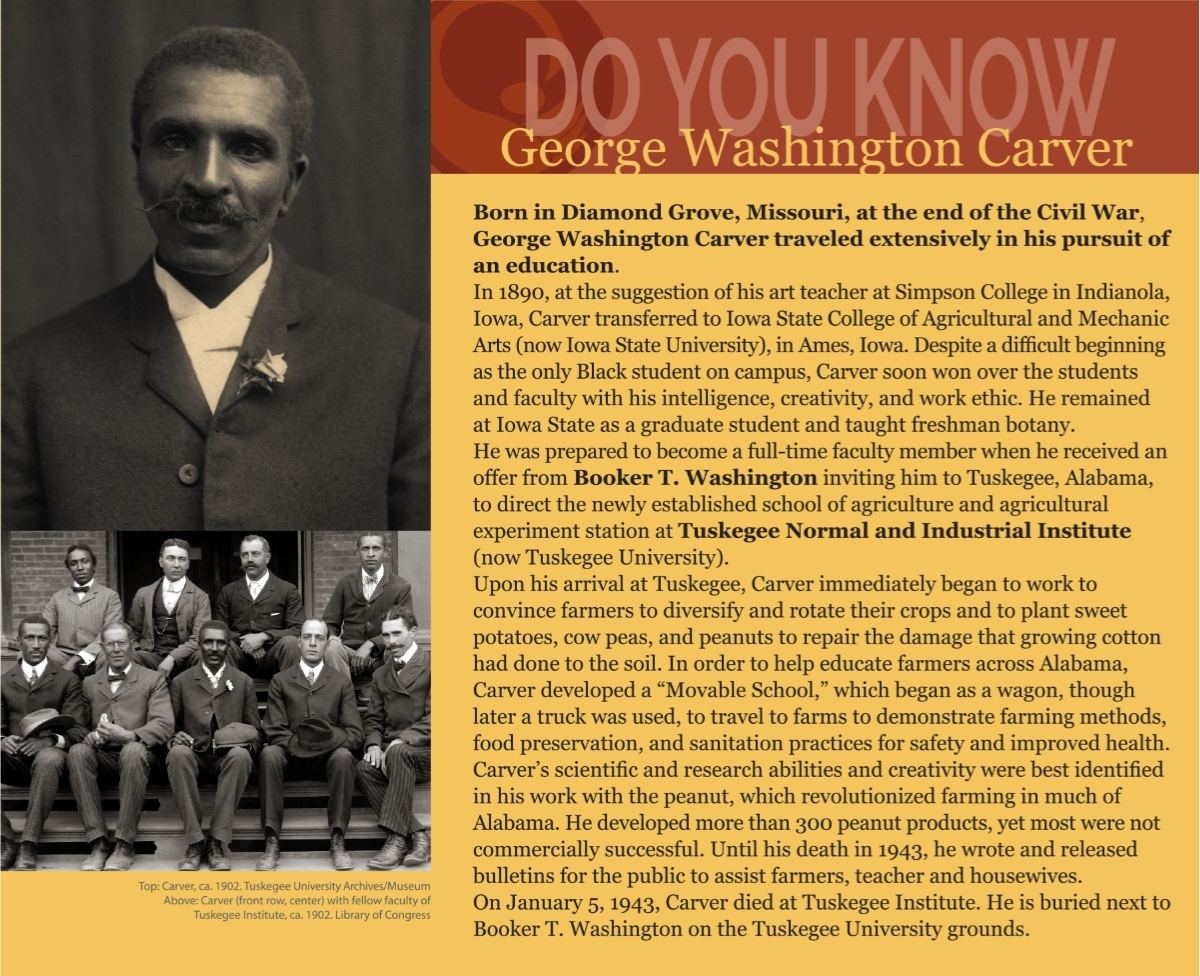
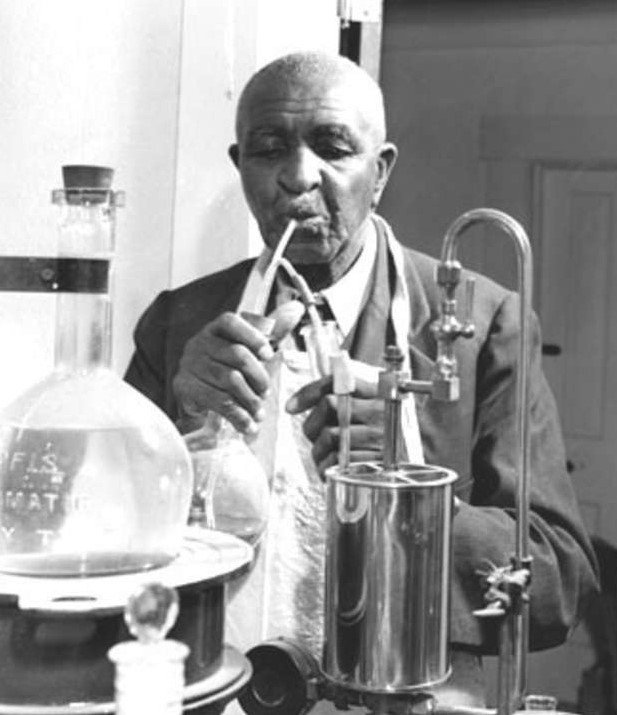

Watch a one minute Legacy Moment about George Washington Carver from Alabama Public Television here.
Primary source photographs from the Tuskegee University Archives can be found here.
Visit the National Park Service George Washington Carver Museum in Tuskegee, Alabama
Check out this article from the Encyclopedia of Alabama.
The Smithsonian Magazine: In Search of George Washington Carver’s True Legacy
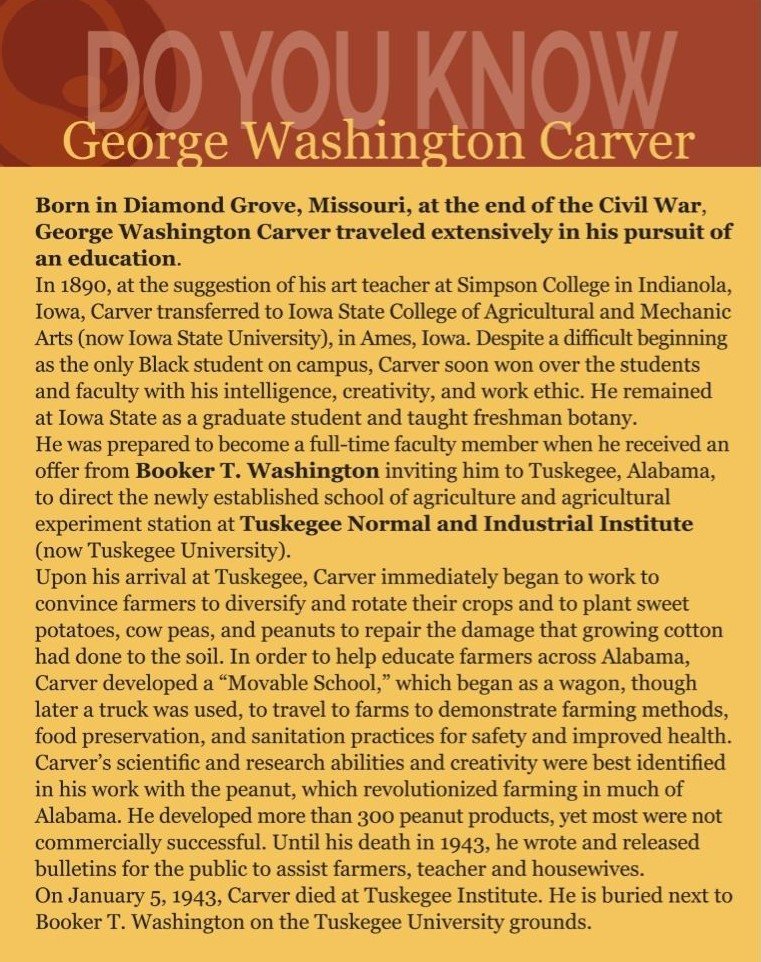
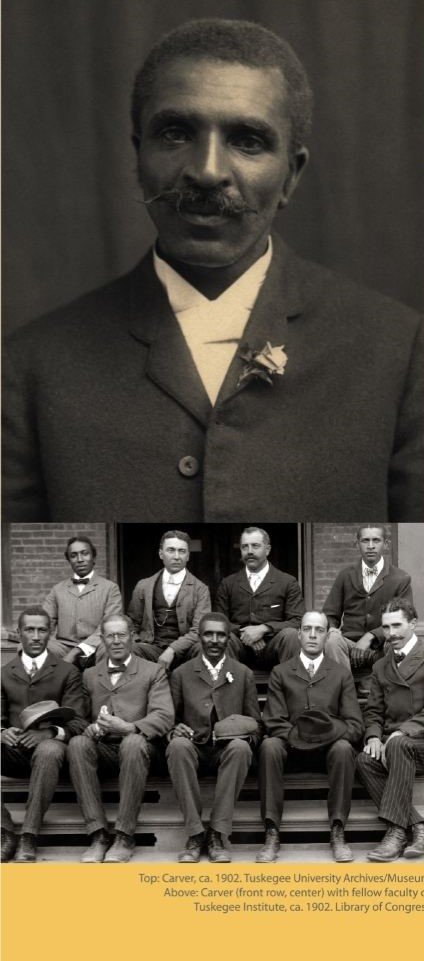


Watch a one minute Legacy Moment about George Washington Carver from Alabama Public Television here.
Primary source photographs from the Tuskegee University Archives can be found here.
Visit the National Park Service George Washington Carver Museum in Tuskegee, Alabama
Check out this article from the Encyclopedia of Alabama.
The Smithsonian Magazine: In Search of George Washington Carver’s True Legacy
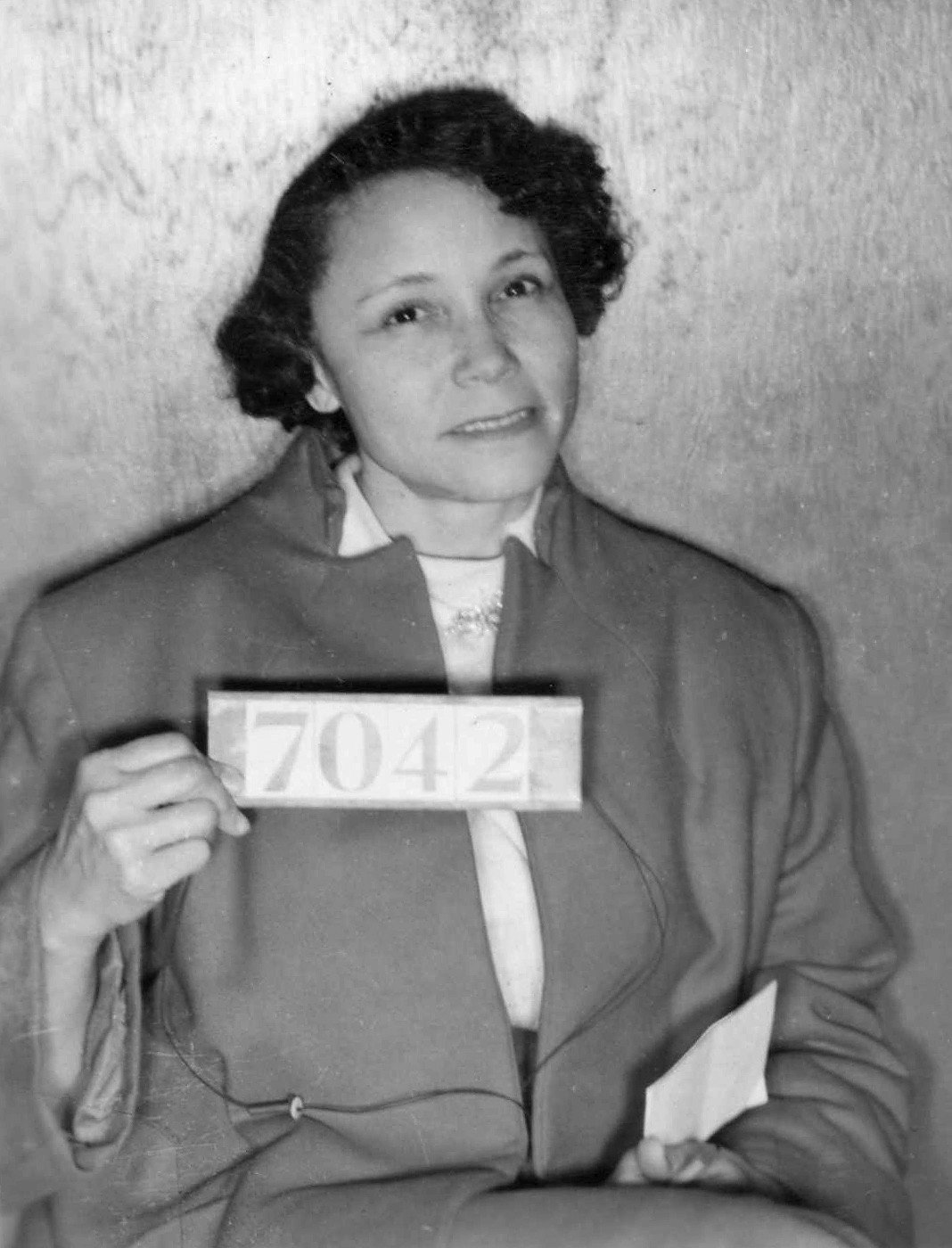

Robinson moved to Montgomery to accept a position in the English Department at Alabama State College (now Alabama State University) in 1949. She joined the Dexter Avenue Baptist Church, which was later pastored by Martin Luther King, Jr. While at Alabama State College, she became friends with professor Mary Fair Burks, the founder of the Women’s Political Council (WPC), which encouraged women to become more politically active.
After being verbally abused on a Montgomery bus, Robinson met with attorney Fred Gray and members of the WPC to discuss the issue of the segregated bus system in Montgomery. In the early 1950s, Robinson and other WPC members met with Mayor William A. Gayle and members of his staff to discuss the problems of the segregated buses. Despite requests and meetings, the issues of the segregated buses continued to occur.
After the arrest of Rosa Parks on December 1, 1955, Jo Ann Robinson and John Cannon, chair of the Business Department at Alabama State College, and two of her students, mimeographed thousands of flyers calling for a one-day boycott of the buses and distributed them throughout the city. The boycott continued until December 20, 1956, and helped to begin the modern Civil Rights Movement in the United States.

Primary sources from the Alabama Department of Archives and History:
Bus Boycott Flier
Watch this 1 minute Legacy Moment from Alabama Public Television about Jo Ann Robinson
Watch this 1 minute Legacy Moment from Alabama Public Television about the Montgomery Bus Boycott.
Discover more stories of Alabama African Americans in The Future Emerges from the Past: Celebrating 200 Years of Alabama African American History and Culture published by ALABAMA 200 as part of the commemoration of the state’s bicentennial.
